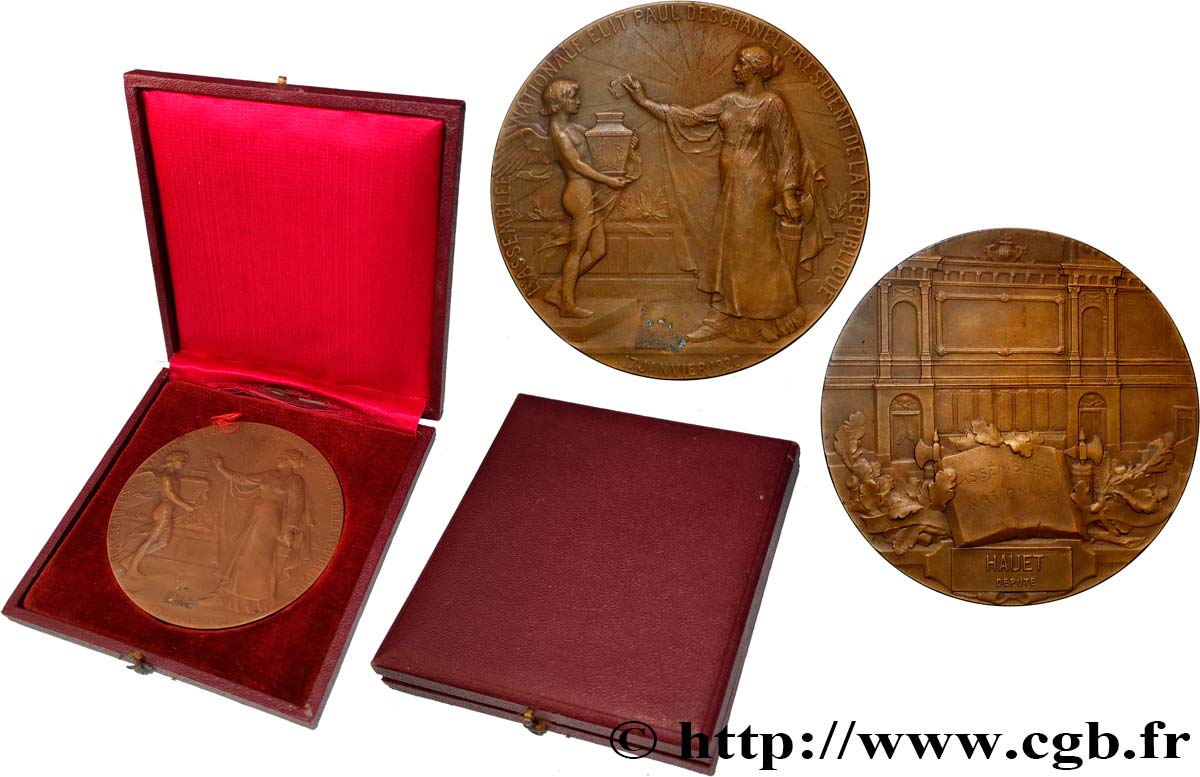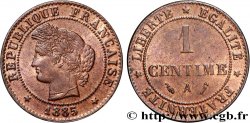fme_920610 - III REPUBLIC Médaille, Élection de Paul Deschanel
60.00 €(Approx. 61.80$ | 50.40£)
Quantity
Add to your cart

Type : Médaille, Élection de Paul Deschanel
Date: 1920
Metal : bronze
Diameter : 72,5 mm
Orientation dies : 12 h.
Engraver DESCHAMPS Léon (1860-1928)
Weight : 127,92 g.
Edge : lisse + BRONZE
Puncheon : BRONZE
Coments on the condition:
Patine marron hétérogène, présentant des marques d’usure sur les hauts reliefs et des taches d’oxydation, notamment à l’avers
Obverse
Obverse legend : L’ASSEMBLEE - NATIONALE ELIT PAUL DESCHANEL PRESIDENT DE LA REPUBLIQUE // 17 JANVIER 1920.
Obverse description : Femme drapée à l’antique, tenant un faisceau de licteur, déposant un bulletin plié dans une urne tenue par un jeune garçon ailé. Signé : DESCHAMPS.
Reverse
Reverse legend : ASSEMBLEE / NATIONALE // HAUET / DEPUTE.
Reverse description : Légende gravée en deux lignes sur un livre ouvert posé entre des branches de chêne et deux faisceaux de licteurs. Vue sur l’intérieur de la salle de l’Assemblée Nationale.
Commentary
Cette médaille, conservée dans un écrin marron, est attribuée à Albert Hauet, député de l’Aisne. Il naquit le 5 août 1867 et est le fils d’un industriel du textile dont l’entreprise familiale était située en Thiérache. En 1904 il fut élu maire de Boué et au Conseil général de l’Aisne pour le canton du Nouvion-en-Thiérache. En 1906, représentant de la gauche républicaine, il remporta les élections législatives. Il fut réélu député à plusieurs reprises sous différentes étiquettes de la gauche. Il reçut cette médaille au cours de son 4e mandat (1919-1924). Il décéda le 18 décembre 1941 à Pougues-les-Eaux (Nièvre)
Cf. https://www2.assemblee-nationale.fr/sycomore/fiche/(num_dept)/3762.
Cf. https://www2.assemblee-nationale.fr/sycomore/fiche/(num_dept)/3762.








 Report a mistake
Report a mistake Print the page
Print the page Share my selection
Share my selection Ask a question
Ask a question Consign / sell
Consign / sell
 Full data
Full data









